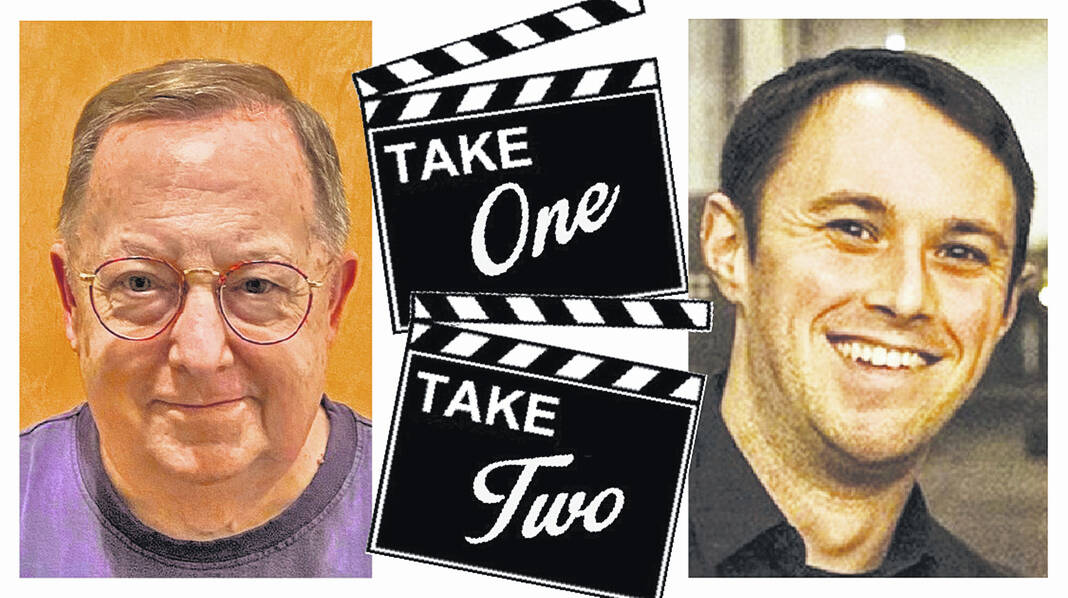
With the Oscars around the corner on March 12, we thought a column on past injustices from Hollywood’s biggest night would be appropriate.
Unfortunately, to address the most glaring grievances, we would have to write several columns. It’s bad enough that Alfred Hitchcock, who directed 54 landmark films, never won a competitive Oscar, although he was nominated six times. He joins thespians such as Peter O’Toole and Glen Close with eight nominations, Richard Burton (seven), Deborah Kerr and Amy Adams (six each) and Michelle Williams (five), all having never taken the stage to collect a statuette.
When it comes to picking Best Picture, the Academy has a dismal batting average. In 1942, John Ford’s “How Green Was My Valley,” a film about Welsh coal miners, won the Best Picture Oscar over Orson Welles’ “Citizen Kane.” Ford’s film has been consigned to the dustbin of film history, while Welles’ masterpiece is considered one of the greatest films in cinema history.
Take One
As pointed out in our introduction, there have been several shake-your-head moments in Oscar history.
The 1952 selection of Cecil B DeMille’s “The Greatest Show on Earth,” a simple whodunit set in a circus background, prevailed over John Ford’s gorgeous “The Quiet Man” (Ford won Best Director) and Gary Cooper as Marshal Will Kane in the brilliant real-time western “High Noon.” Ironically, what many consider to be MGM’s greatest musical, “Singin’ in the Rain” was not even nominated. In 1998, the lightly regarded “Shakespeare in Love” won over Steven Spielberg’s blockbuster hit “Saving Private Ryan,” one of the greatest war pictures ever made. (Spielberg was awarded the Best Director Oscar)
In my estimation, the greatest injustice in the acting categories was 1969’s selection of John Wayne as Best Actor for his portrayal of the aging, overfed Marshal Rooster Cogburn, in “True Grit,” a parody of Wayne’s many western roles.
Forgotten was the brilliant transformation of Dustin Hoffman from clean-cut college graduate Benjamin Braddock in 1967’s “The Graduate” to the seedy homeless NYC con-artist Enrico “Ratso” Rizzo in the Best Picture winner “Midnight Cowboy.” Over half a century later, this remains the greatest film role to have never won an Oscar.
Finally, in 1994, the Best Documentary Oscar went to “Maya Lin: A Strong Clear Vision,” the story behind the artist who designed the Vietnam Memorial Wall. It’s a nice little movie that has faded away over the years.
Not nominated was “Hoop Dreams,” the story of two Black Chicago high school basketball stars, one in public school and the other in an exclusive private school, whose lives go down very different paths toward the same goals. Most critics believe “Hoop Dreams” to be one of the top 25 documentaries ever made.
Take Two
A brief digression: I actually like “How Green was My Valley” even more so than “Citizen Kane.” This contradicts my counterpart and sides with the Academy’s choice. In all seriousness, “Kane” stands the test of time as one of the most influential films in cinema history, but “Valley” is chock full of marvelous major-studio magic (20th Century Fox) having been filmed on an 80-acre site near Malibu, California. It’s an underappreciated John Ford film that you should decide for yourself on its worthiness. I do agree with my partner on “The Greatest Show on Earth” — what a travesty.
Plenty of people opine that Robert Redford’s “Ordinary People” beating out “Raging Bull” at the 1980 Oscars as the ultimate tragedy, and they could be right. But both films are excellent.
Redford’s film is a sensitive family drama that hinges on a gut-wrenching twist and still feels emotionally engaging all these years later. Scorsese’s “Bull” needs no introduction, and most of us are still privy to its mighty power and gut-wrenching violence. I’d probably side with Scorsese, but I appreciate the difficulty in the decision that year.
The 2005 awards have also become the stuff of Hollywood legend. A small film called “Crash” by Paul Haggis (recently sued on sexual assault charges) won the Best Picture Oscar. The film, considered a “serious” drama about intersecting lives that cross class, race and gender, is a miserable watch today; a product of the worst parts of early-2000 cultural politics.
All the more tragic is that it beat out so many other fine films such as George Clooney’s note-perfect ode to ‘50s journalist Edward R. Murrow in “Good Night, and Good Luck,” Steven Spielberg’s violent and sprawling revenge saga “Munich,” the quiet, elegant biopic “Capote” of “In Cold Blood” author Truman Capote, and finally Ang Lee’s groundbreaking gay Western, “Brokeback Mountain,” which is consistently (and correctly) referenced as the rightful owner of that year’s trophy.
(This column is written jointly by a baby boomer, Denny Parish, and a millennial, Carson Parish, who also happen to be father and son.)

